






The aspirations of the MINES@150 strategic plan launched the Campaign for MINES@150. Since October 2016, individuals, foundations and companies have invested more than $546 million. As we head into the final months of this campaign, we are celebrating this significant accomplishment by telling stories about the impact made possible by generous investments.
The distinctiveness of Mines graduates reflects the uniqueness of the Mines student experience. The ingredients include rigor, challenge, practical experiences, traditions, teamwork, opportunities to turn ideas to reality, leadership, professional development and community. Investments in the Signature Student Experience support programs, activities, traditions, groups and facilities that play key roles in molding Orediggers.
THE PURSUIT OF EXCELLENCE AND DISTINCTION
Our ongoing pursuit of excellence and distinction is what ultimately attracts the top students, faculty and staff, coaches and student-athletes to Mines. Investments in Excellence and Distinction enable Mines to offer the unique programs, support, facilities and equipment that differentiate us from other universities.
BUSINESS PROGRAMS
Mines is ensuring all graduates have the business acumen they need to succeed and are prepared to advance their ideas and innovations at existing companies and ones they create. Investments support the thriving Mines Entrepreneurship & Innovation Ecosystem—which includes state-of-the-art facilities, new programs and curriculum—as well as expanded business curriculum and degrees.
Mines aims to ensure that promising students from all backgrounds can receive a distinctive Mines education and develop their great potential for successful and wide-ranging careers. Investments made through scholarships, community building or connecting with our future students at a young age will continue to attract and support the best and brightest to Mines for years to come.
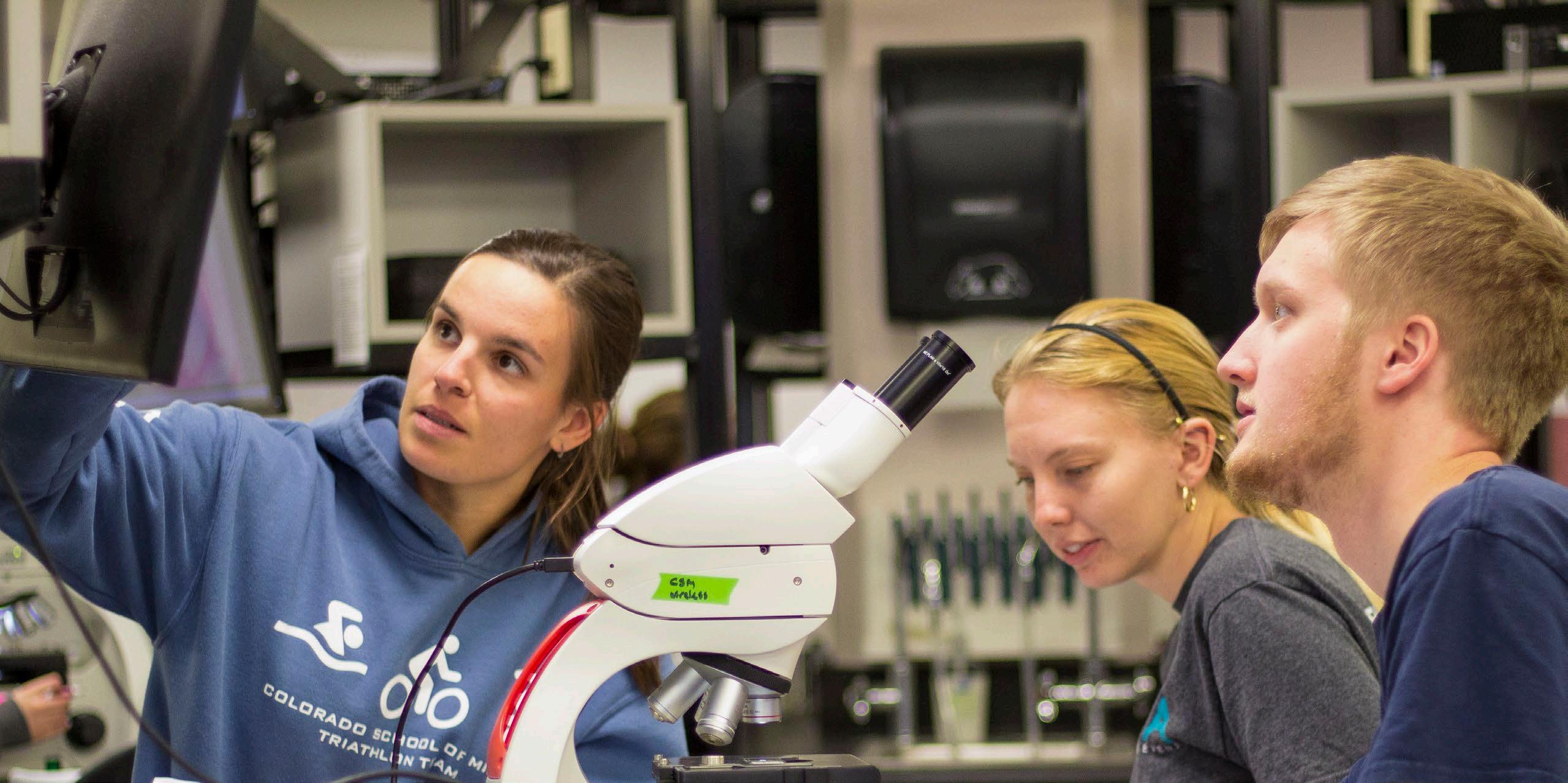
$546M
Total Dollars Committed 75K
Total Number of Gifts $215M Raised for the Endowment 86% Gifts Under $1K $70M Committed by Corporations & Foundations
FUNDS DISTRIBUTION BY CAMPAIGN PRIORITY
Investment in Students
Non-Governmental Research Support
The Pursuit of Excellence & Distinction
The Mines Signature Student Experience
Entrepreneurship & Innovation and Business
Unrestricted/ Undesignated
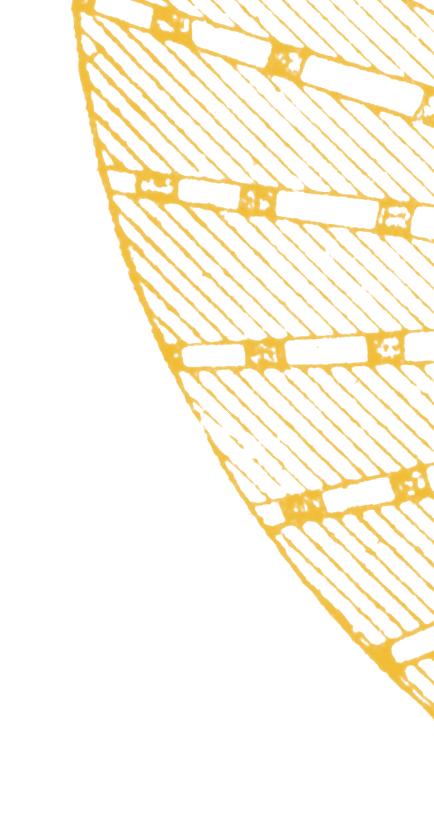


BE CURIOUS AND ASK TOUGH QUESTIONS. BE PLEASED WITH YOUR ACHIEVEMENTS BUT NOT SATISFIED. DEFINE YOUR OWN SUCCESS AND TRUST THAT YOU’LL ACHIEVE IT.
These are a few leadership tenets that Bruce Grewcock ’76 aims to instill in the Grewcock Presidential Scholars.
“The best leaders today are great listeners,” said Grewcock, executive chairman of the board of Kiewit Corporation and chair of the Mines Board of Trustees. “They have a broad range of skills and interests. They lead with intellectual curiosity, and they make decisions with emotional intelligence. Mines students get a great technical education here, hands down. I want to expand their worldview, to expose them to topics and experiences that are way off their classroom agenda.”
In 2020, Grewcock and his wife, Debra, made a transformational $30 million gift to establish the Grewcock Presidential Scholars Program. It’s now one of Mines’ most prestigious and leadership-intensive Scholars Communities.
“In philanthropy, you have to do something you have a passion for and where you can move the needle,” he said. “I knew I could move the needle with a scholarship. With the leadership program, I could make sure these kids could step into the world better prepared to be part of the next generation of leaders.”
Each year, the program accepts 10 students—less than 0.5 percent of applicants—who receive a four-year scholarship. But it offers more than financial aid. Students learn to embrace their authenticity and purpose through:
• One-on-one leadership coaching and skill development
• Community-wide leadership programming, including the Grewcock Leadership Speaker Series
• Immersive experiences, including business trips
• A close-knit community that creates a defining Mines experience
Scholars spend valuable time with Grewcock, who gives them insight on his career and gives them examples of leadership.
“The Grewcock program taught me that leadership is a skill you need to train,” said Tucker Briggs, who is pursuing concurrent bachelor’s and master’s degrees in engineering physics. “It’s an attribute that occurs for all areas of your life.”
Finding community at Mines can be equally important as the degree you earn. For Grewcock Scholars, that’s built in.

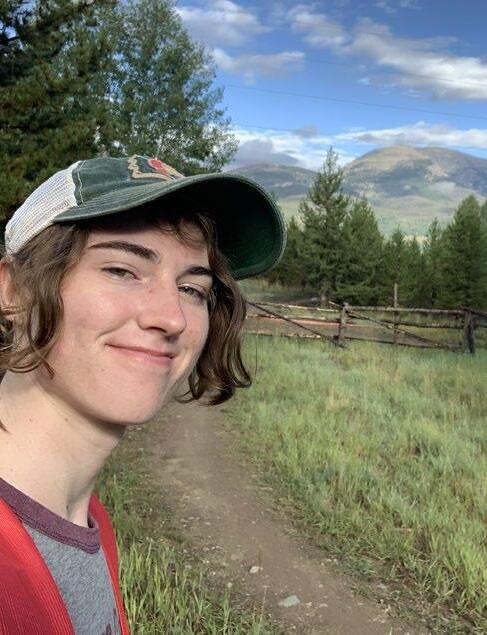
Every Oredigger’s journey through Mines is underpinned by the technical rigor Mines is revered for. Along the way, there are in- and out-of-class opportunities to learn and practice leadership, think critically, innovate, develop teamwork skills, build networks and develop professionally. The result: exceptional and distinctive graduates who stand out—as the companies who hire them have affirmed.
Recent investments have created new honors, leadership and professional development programs. They have also supported old and new traditions, clubs and organizations and competition teams.
“Grewcock Scholars have diverse experiences, and we can weave them together to understand different perspectives,” said junior Ryan Kennett, a quantitative biosciences and engineering major. “Mines is a small school, and being part of these communities makes it feel like family.”
Briggs said he’s found the intersection of what he loves and what’s good for the world through the Grewcock community.
“I am surrounded by some of the most caring, brilliant people on campus,” he said. “We show each other how to make an impact.”
Tre Bursnall ’23, MSNT ’24 is working full-time as a code engineer while pursuing a PhD in computer science at Mines. He said being part of the Grewcock community fed into his strength as a mentor and a teacher.
“As the next group of students came in, I taught them things about the program, helped them with homework and other things,” he said. “I exercised my own way of being a leader, making sure they felt welcome and accepted.”
The scholar-run Leadership Speaker Series has brought a diversity of leaders to campus, including global market research expert Mohamed Younis, Erik Weihenmayer, the first blind person to summit Mount Everest, and Swedish inventor and professional YouTuber Simone Gertz.
“When I thought about college, I thought about getting different perspectives,” Kennett said. “The speaker series has been huge for that. I’ve been fascinated by speakers who weren’t only engineers, but accomplished people. I look forward to those events and love helping to plan them.”
It’s common for hundreds of people to attend, as the events are open to campus. Afterwards, the scholars and speakers get together for a private reception.
“We had discussions with so many interesting people because of Bruce’s connections,” Bursnall said. “Bruce opened the door for us. Speakers often stayed well after the scheduled time because we were having such interesting conversations.”
Scholars take a summer business trip with Grewcock, who sets up meetings with leaders from across the spectrum, from CEOs to a former U.S. secretary of defense to major philanthropists. So far, they’ve gone to Washington, D.C., New York and Omaha, Grewcock’s hometown.
“The Omaha trip was very eye-opening,” Kennett said. “We had one-on-one conversations with company executives about what leadership looks like for them. We talked about philanthropy and how you can lead through it. It changed how I look at being a leader.”
The first Grewcock cohort graduated in 2024. Seven of the 10 are attending graduate school, and the others have secured full-time jobs in industry. Grewcock hosted a graduation celebration for the scholars and their families.
“It has been satisfying to see how they’ve grown since they were freshmen and how they’re applying the things I wanted them to get from the program,” Grewcock said. “Their families said the scholarships allowed their kids to get this great education without student loans or putting a financial burden on the family. I feel like I have made a difference.”
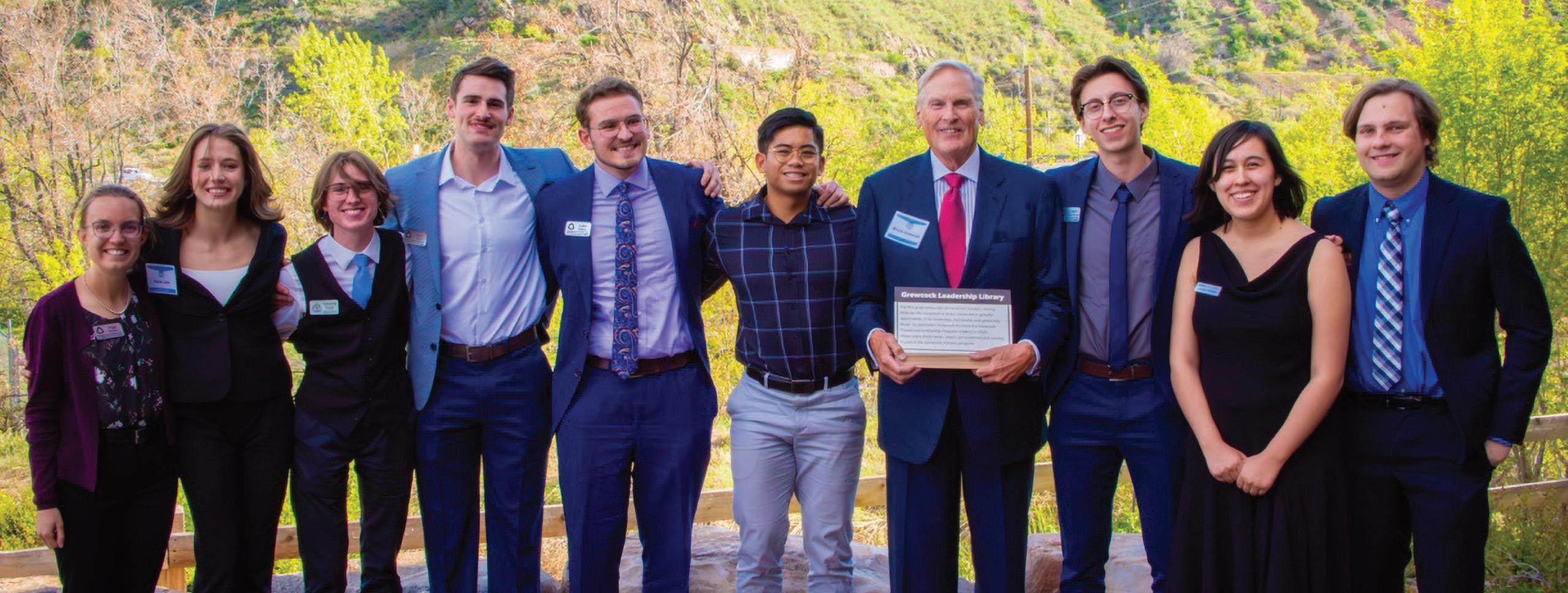

Kerry Siggins ’01, Kari Gonzales ’02 and Kim Alanis ’04, MS ’05 have many things in common. They grew up playing softball in Colorado, then played together at Mines with the help of athletics scholarships. They’re moms with successful careers—Siggins and Gonzales are company CEOs. Alanis is a geological consultant and a head high school softball coach.
They credit the sisterhood and skills they built on the softball team for keeping them at Mines through tough personal struggles and for building the lives they lead today.
“Mines softball can put out some pretty amazing women, the ones who will be leaders and engineer innovative products and services all over the world,” said Siggins, CEO of StoneAge Inc.
In 2024, Siggins, Gonzales and Alanis collaborated on a fundraising campaign that was not only aimed at replacing the grass field with turf, but also at reconnecting softball alumni with the program.
“These women were excited to hear about the team and how else they can get involved,” Siggins said. “I think we’ll see more attendance at games and more former softball athletes coming to campus to share their stories and inspire the team.”
The effort was a huge success, bringing in $170,000— almost 20 percent more than their goal. Mines installed the new surface in Fall 2024. It’s safer and more reliable than grass, and it puts fewer maintenance demands on the players, who for decades have been responsible for preparing the often muddy and waterlogged grass field for play in foul weather.
“The campaign was an exceptional showing from the school, from alumni and from others who support Mines athletics,” Siggins said. “It’s about so much more than the field—it’s about continuing to build a community where women can thrive, both on the field and in their careers.”
Head coach Tobin Echo-Hawk started her first season with the Orediggers in January. She said having turf totally changes how the team can prepare to compete by practicing outside as a team, instead of sharing time with indoor sports teams in Mines’ gyms.
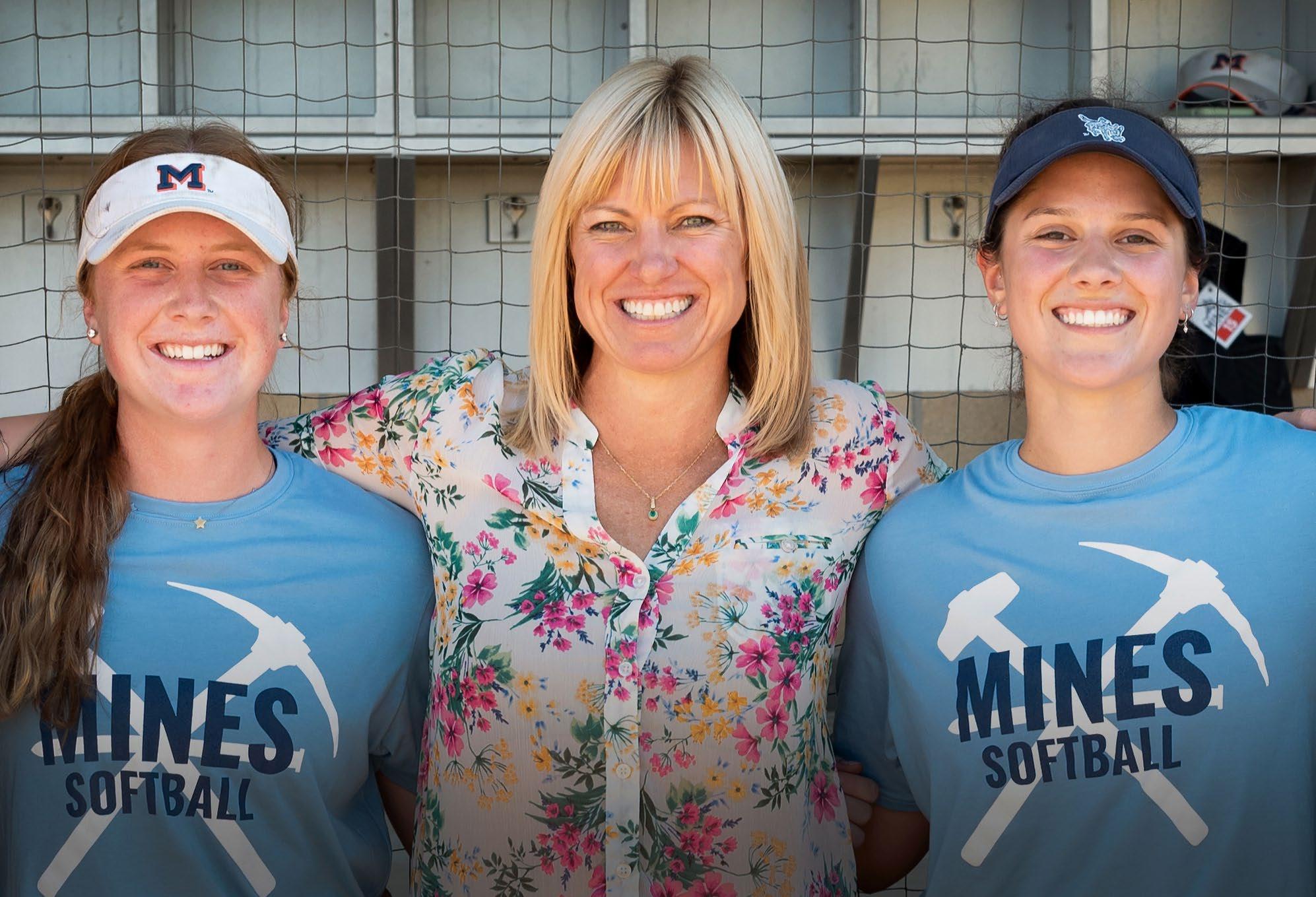

It’s about so much more than the field—it’s about cont I nu I ng to build a community where women can thr I ve, both on the field and in their careers.”
Kerry Siggins ’01
Echo-Hawk said the level of alumni engagement at Mines far exceeds anything she’s experienced during her decadeplus coaching career.
“This is a really big thing for the program and for the players,” she said. “They feel really supported by women who understand the difficulty of being a softball player alongside being a Mines student. Alumni have built the foundation for our team. Without what they’ve done, we wouldn’t have the culture we have today.”
The team has practiced on the new field since January 2025. Senior infielder Hannah Roberts said it has leveled-up softball facilities to match the growth in culture and work ethic she’s seen on the team.
“It is mind-blowing that alumni have given us this kind of support,” she said. “We all care about each other on and off the field, and I think this shows that the buy-in and love for the program extends past the time you play. We are just so thankful.”
Siggins said she hopes the team knows that alumni are there for them.
“We need women to feel like they belong at Mines, that they can stay at Mines and that they have the support they need,” she said. “We believe in their futures, and these are just small ways that we can invest in those futures.”
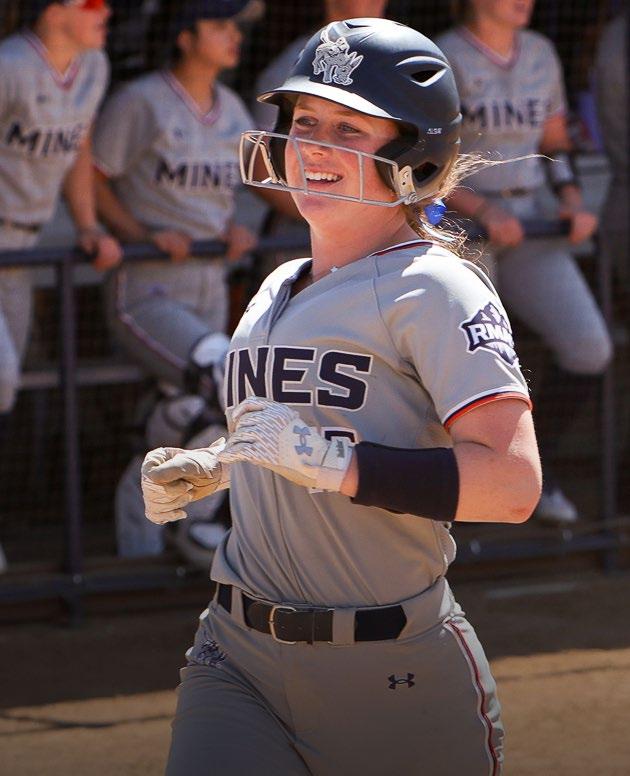


In 2017, Ben Fryrear ’62 made a transformational gift to create the Fryrear Chairs for Innovation and Excellence. The program awards the best and brightest faculty $25,000 a year for three years to build innovative programs that advance the university’s mission.
Fryrear has been a loyal Mines advocate for over 35 years. He served on the Mines Foundation Board of Governors from 2016-2019 and was awarded the Mines Distinguished Achievement Medal.
“I’ve seen that one of the best ways to make a lasting impact for a university is by supporting faculty,” Fryrear said. “Students come and go, which is why it’s important to reward and retain faculty leaders.”
The 13 Fryrear Chairs to date came from departments across campus. Their projects ranged from integrating soft engineering skills into curriculum to creating a postdoctoral affairs office to adopting generative AI tools in teaching. Applications are open to all faculty, from teaching faculty to tenured professors.
Mines Provost Richard Holz said faculty often have great ideas to make a significant impact on students, but resources to move a great idea forward can be hard to come by.
“The Fryrear Chairs give us resources to say yes to innovative ideas from smart, engaged faculty that can do great things for the university,” Holz said. “Ben’s vision for this program is a true testament to his own innovation.”


I looked to make Mines distinctive by helping to develop faculty members who are triple threats: outstanding in research, teaching and service, and who are committed to the institution and their individual missions. The Fryrear Chair is an opportunity to make big changes at a small school.”

by academic years
2017–2020
Eric Toberer, PhD
Kamini Singha, PhD
2018–2021
Geoff Brennecka, PhD
2019–2022
Linda Battalora, PhD
2020–2023
Alexis Navarre–Sitchler, PhD
Craig Brice, PhD
2021–2024
Asle Zaeem, PhD
2022–2025
Katie Johnson, PhD
2023–2026
Andres Guerra
Justin Shaffer, PhD
2024–2027
Leslie Lamberson, PhD
Scott Strong, PhD
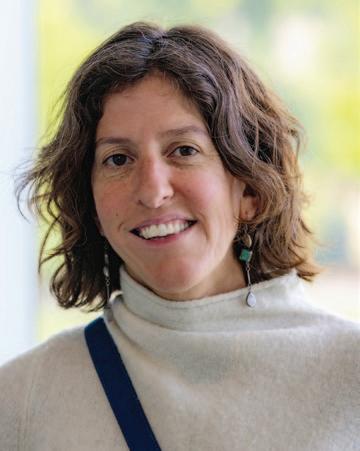
As a leader in engineering and applied science education for over 150 years, Mines has always aligned itself with the needs of industry and society. That has led to deepening our expertise in traditional fields like mining, energy and manufacturing and moving into new frontiers like quantum engineering and space resources.
Investments in the Pursuit of Excellence and Distinction support that alignment and fuel the things that lead to the national prominence of our academic programs, research centers, faculty, student organizations and athletic teams.
At most universities, undergraduate students don’t often have a chance to work on research projects—those opportunities typically go to graduate students.
In contrast, Mines undergraduates have opportunities to conduct leading-edge research alongside faculty mentors, which involves learning how to design and conduct studies and even co-author scientific papers.
But for years, there was no central campus coordination for undergrad research. Opportunities spread by word of mouth, and students often learned about research late in their degree, if at all. That all began to change in 2018, when Mines physics professor Eric Toberer, PhD received one of two inaugural Ben L. Fryrear Chairs for Innovation and Excellence.
In 2011, Toberer started a program to recruit community college transfer students to do lab research. He used his $25,000 annual Fryrear Chair funding to expand it into a campus-wide undergraduate research program.
“I saw an opportunity to elevate undergraduate research at Mines to the national level and beyond,” he said. “Because I had the financial resources from the Fryrear Chair, I could envision, collaborate on and ultimately help create an undergraduate research framework.”
Toberer collaborated with research team member Lakshmi Krishna, PhD to lay the foundation for the Office of Undergraduate Research and secure permanent funding. The impact has been tremendous:
A centralized hub. Students can choose from multiple fellowship programs, access funding opportunities and easily match with faculty members. The program also offers workshops and a class for firstyear students.
More students, more projects. Student applicants have increased four-fold through this academic year, and the number of available projects has doubled.
Expanded student showcases. Students gain professional experience through poster sessions and talks at twiceyearly Undergraduate Research Symposiums and publishing papers in the student-run research journal. About 200 students participated in the symposium last year, up from 80 in 2018.
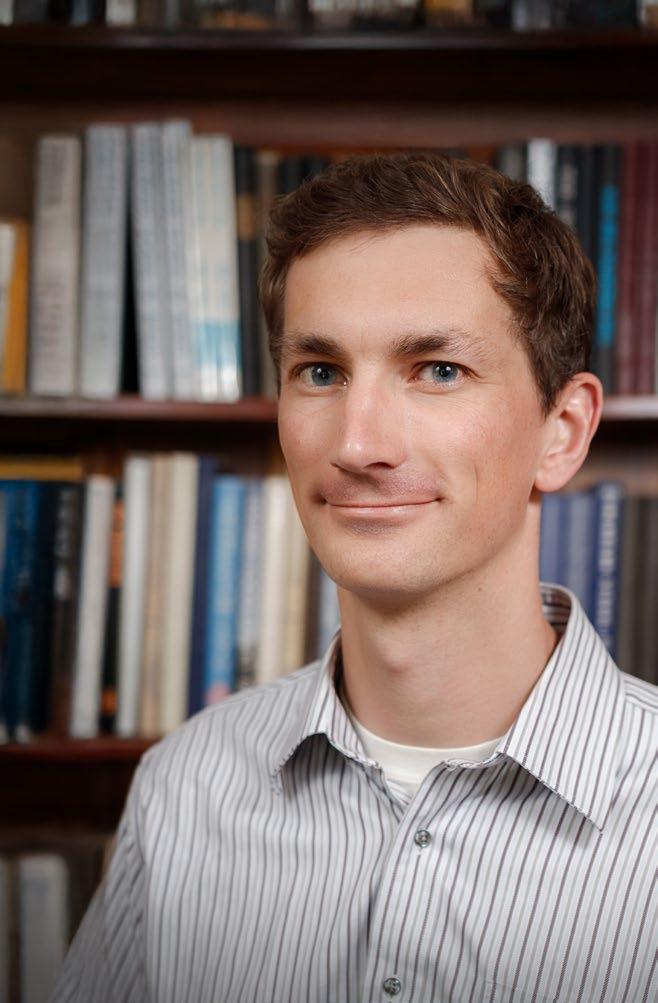
Toberer said he is proud that his spark of an idea transformed into one of Mines’ largest student experiences, but he is not alone.
“If you look across Mines, most faculty are engaged in some sort of ‘hero’ effort that makes Mines a better place, often scraping together funding to make it happen,” he said. “The Fryrear Chair gives faculty the funding to create distinctive programs from the bottom up.”
The Mirror Mentoring at Mines program inspires local high school students—many would be first-generation college students—to go into STEM by bringing in Mines students as mentors. My Fryrear Chair has been a springboard for keeping the program going and expanding it to five schools this year.”
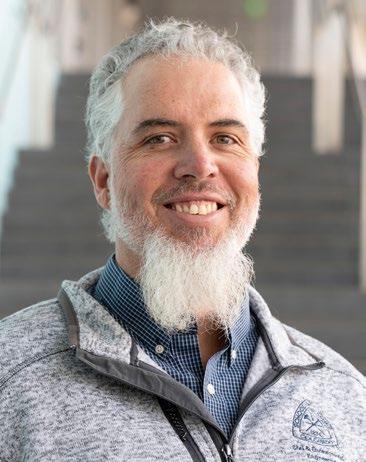
The Freeport-McMoRan Foundation made a $1 million gift to the Edgar Experimental Mine Modernization Plan. It’s the company’s second $1 million gift in 10 years, establishing Freeport as the mine’s biggest supporter since Mines purchased it in 1921.
“We recognize the importance of learning facilities like the Edgar Mine in attracting and retaining students and faculty to help ensure a future talent pipeline,” said Tracy Bame, Freeport-McMoRan Foundation president. “We value the longterm partnership we’ve built with Mines to make sure future mining engineers receive high-quality, real-world education.”
The Edgar Mine is likely the largest and most sophisticated of five university-owned mines in the United States and the only one with a Wi-Fi-enabled underground classroom. The mine serves as an underground laboratory for future engineers responsible for finding, developing and processing the world’s natural resources. Many Mines departments conduct training and research there—some supported by industry—including work on improving mine safety and environmental impact.
The mine also offers educational tours for the public and school groups, cooperates with industry, state and federal organizations in research, and trains engineers needed to maintain the nation’s leadership in the field of mineral engineering. Industry is highly supportive of the mine’s research and educational program, donating most of the mine’s equipment over the years.

e ng I neers com I ng out of school today want to make an I mpact on the world. t he e dgar mI ne g I ves them a head start.”
Josh Olmsted ’92
Construction is scheduled to be done in 2025.
The plan includes:
• A new bathhouse with facilities for men and women, not only for Mines students, faculty and staff, but also for Mine Rescue Training Course attendees, industry and government partners who conduct training, testing and research, and the 2,000-plus annual visitors who tour the mine.
• A new 30-person underground multipurpose room for classes, research, training and community education— students and staff will do the excavation.
• Office space for staff and researchers.
• Connection to a potable water supply and sewer utilities and airflow modifications.

Josh Olmsted ’92, Freeport-McMoRan president and chief operating officer-Americas, holds fond memories of the Edgar Mine. Every Friday during his first year as a mining engineering student, he took classes in the mine’s underground classroom.
“The Edgar Mine gave me a great opportunity to experience mining in a way you wouldn’t get in a normal classroom,” he said.
“It shaped my education and my exposure to industry. I was a shifter for two years, which is a shift boss who helped organize classes and coach students. That job helped finance my education in something I loved doing.”
Olmsted said the foundation invested in updated facilities and infrastructure because they are crucial to ensuring the facility is available over the long run, and not just for the mining department.

“Mining needs people from all disciplines to support decarbonization, which won’t happen without critical minerals,” he said. “Engineers coming out of school today want to make an impact on the world. The Edgar Mine gives them a head start.”


$98M Total Raised* $35M Faculty Support 11 New Endowed Chairs and Named Faculty Positions $62M Department, Academic Program and Science Support
10/1/2016-2/28/2025.
For energy executives Doug ’88 and Dave ’90 Lawler, attending Mines and playing football was one of the greatest blessings of their lives. But the love, encouragement and support of their parents made them the masters of their own destiny.

or families like ours, ng to mInes can be a financial burden—but a worthwhile one. w e want to help another family along life’s way like our scholarships did for us.”
Dave Lawler ’90
For more than three decades, corporate sponsors contributed nearly $1 million to help Mines give incoming students with great potential an academic leg up before their first semester starts.
The four-week Challenge Summer Bridge Program brings students to campus early to gain academic skills in areas that may not been offered at their high schools, such as pre-calculus, introductory chemistry and engineering design lab.
Students also do community-building activities, take professional development workshops and volunteer in Golden. They live, study and share meals together, making lifelong friendships that reinforce the persistence needed to get through Mines.
“From the start, gifts from corporate sponsors like Halliburton, ConocoPhillips, Lockheed Martin, Xcel Energy and Phillips 66 have been critical for us,” said program director Stepheny Beauchamp, EdD. “This support allows us to offer the program to students at no cost. Students learn to self-advocate and develop tools for success in college and beyond.”
In 2023, the brothers established the Robert M. and Nancy L. Lawler Endowed Scholarship Fund to express their deep gratitude for their late parents and to relieve some financial burden from varsity football players majoring in petroleum engineering.
The Lawlers grew up in a middle-class home in Denver’s west suburbs and played high school football. Their dad was a pressman at the Denver Post for 35 years. Their mom worked part-time jobs to be home for the kids and support the family.
“Dad was not able to finish college himself, but he knew the value and knew how to push us to be the best we could with blessings and abilities,” said Doug Lawler, president and CEO of Continental Resources and Mines Board of Trustees member. “We saw how hard he worked and how his labor produced everything for us. Mom made the most out of everything. Without the foundation they built for us, we wouldn’t be where we are today.”
Dave Lawler said their parents dreamed they would go to Mines and sacrificed to make sure they could. The brothers supplemented that financial support with part-time jobs and student loans. But they couldn’t have afforded Mines without their football scholarships.
“For families like ours, coming to Mines can be a financial burden—but a worthwhile one,” said Dave, CEO of Kimmeridge Texas Gas and member of the Mines Foundation Board of Governors. “We want to help another family along life’s way like our scholarships did for us.”
They hope the scholarship will attract students into the evolving world of energy, which has been good to them. And they believe their parents would be happy to learn about the scholarship made possible by the financial success that started as a foundation of love.
“They were very proud of what Dave and I have been able to do, but they would have been proud of us no matter what,” Doug said. “Their encouragement lives strongly in our hearts. It’s important to honor them.”
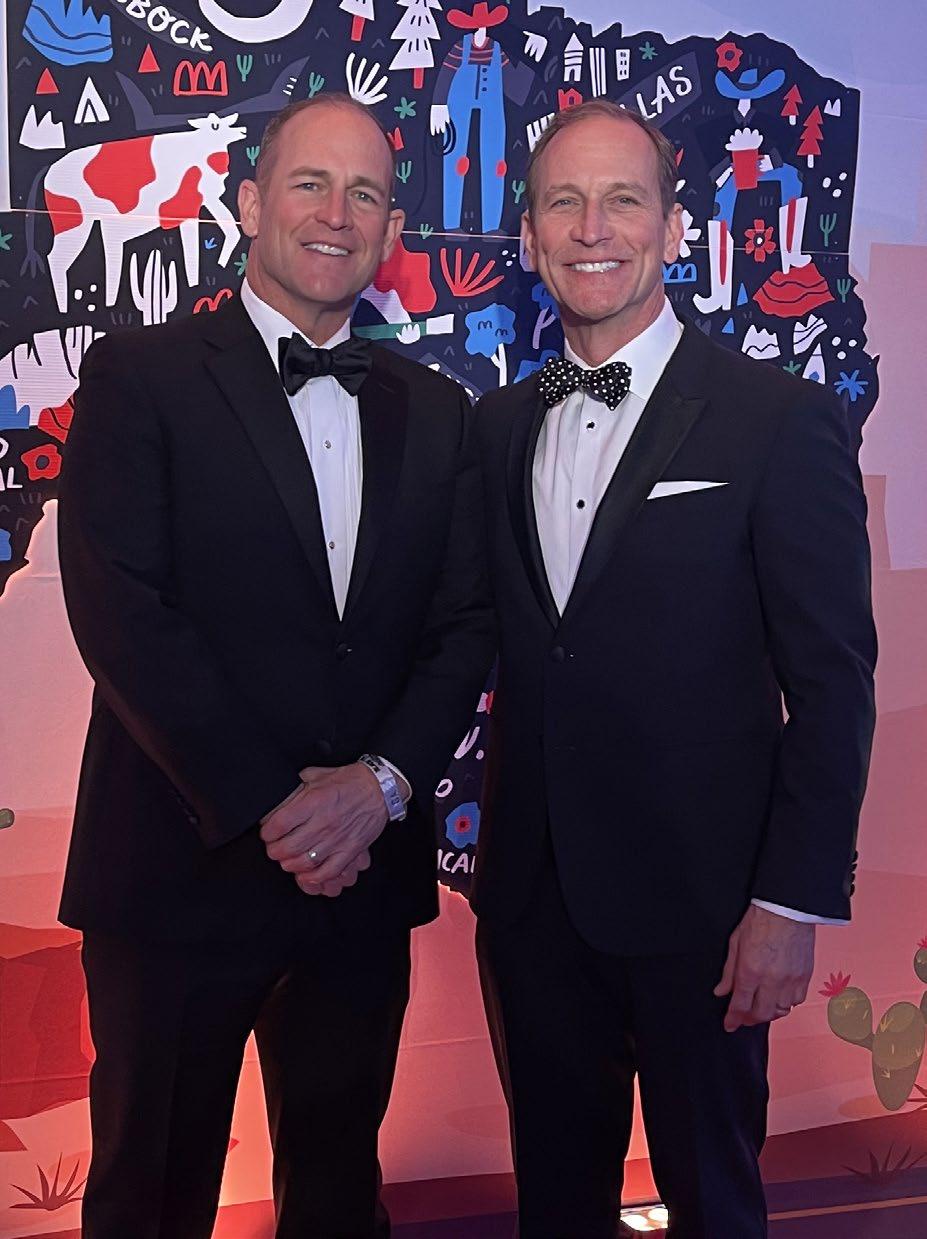
The Challenge Program is growing, with 37 students participating in the 2023-2024 academic year, up from 23 the previous year.
“The Challenge Program is one of the best experiences I had at Mines,” said Aaron Hsu ‘23. “It prepared me for college-level courses while teaching me skills that I still use to this day. I had the support of an amazing community and access to resources to help me achieve my goals and further my career.”
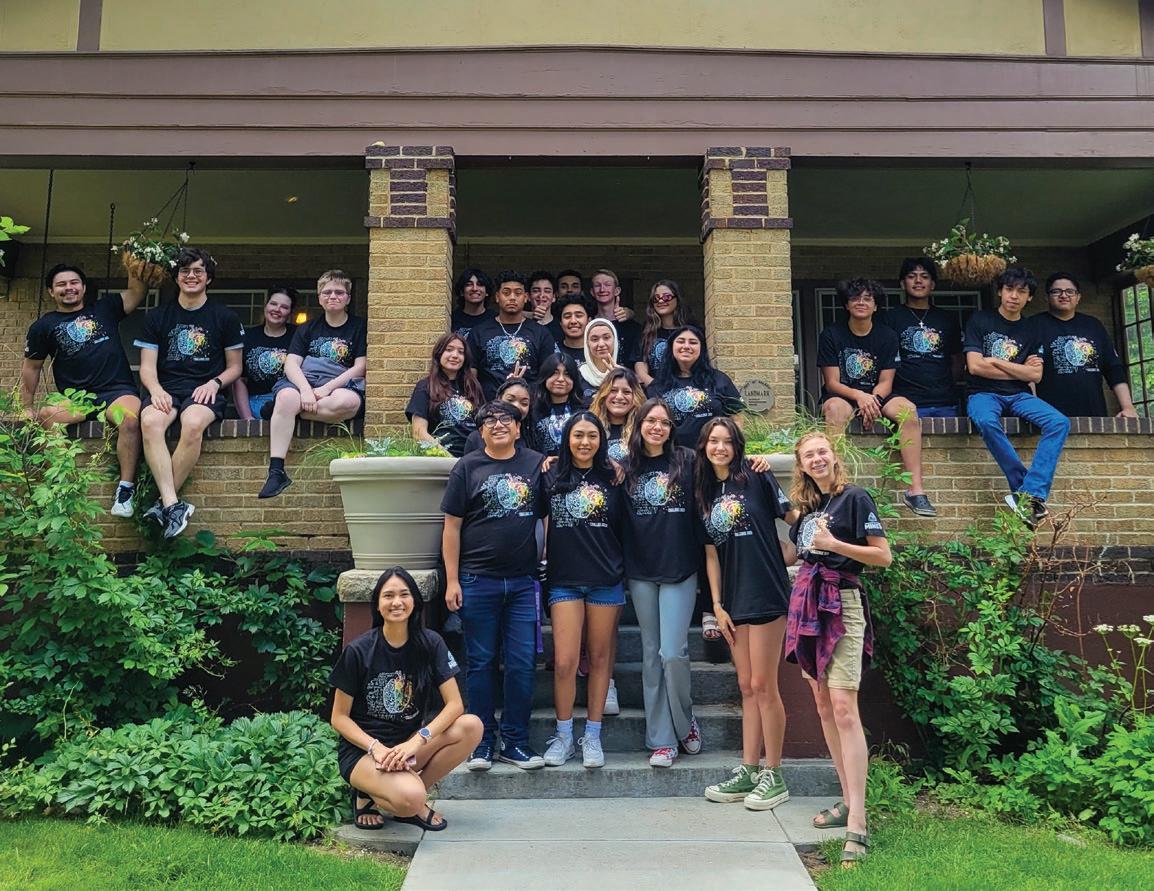
When Mines launched a bachelor’s degree in ceramic engineering in 2023, seven students changed their majors to earn it. The number of students pursuing the major in the metallurgical and materials engineering department (MME) has already doubled.
The program is sure to attract even more highly qualified students thanks to a new scholarship established by Mike Nagorka ‘83, MS ‘86. Nagorka, a member of the department’s alumni advisory board, created an annual scholarship for a senior majoring in ceramic engineering. Senior Jack Dorsey received the first award in Fall 2024.
“I heard about the degree, and I was delighted the school was offering it,” said Nagorka. “It seemed appropriate for someone to step up and reward an undergraduate for taking it on. It turns out that there are plenty of people who are interested in ceramic engineering.”
Mines became a mecca for ceramic engineering in the ‘90s. Now, it’s one of three U.S. universities offering an undergraduate ceramic engineering degree. Students learn how to turn raw materials such as ores into high-performance products in energy, transportation, electronics, aerospace, renewables, biomedical and computing.
“Ceramic engineering is just starting to blossom at Mines, and it’s important that we put resources into that process as much as we can,” said Ivar Reimanis, PhD, MME department head. “A scholarship can catch the eye of high-achieving students to take a second look at Mines and explore this field of engineering, where opportunities are growing fast.”
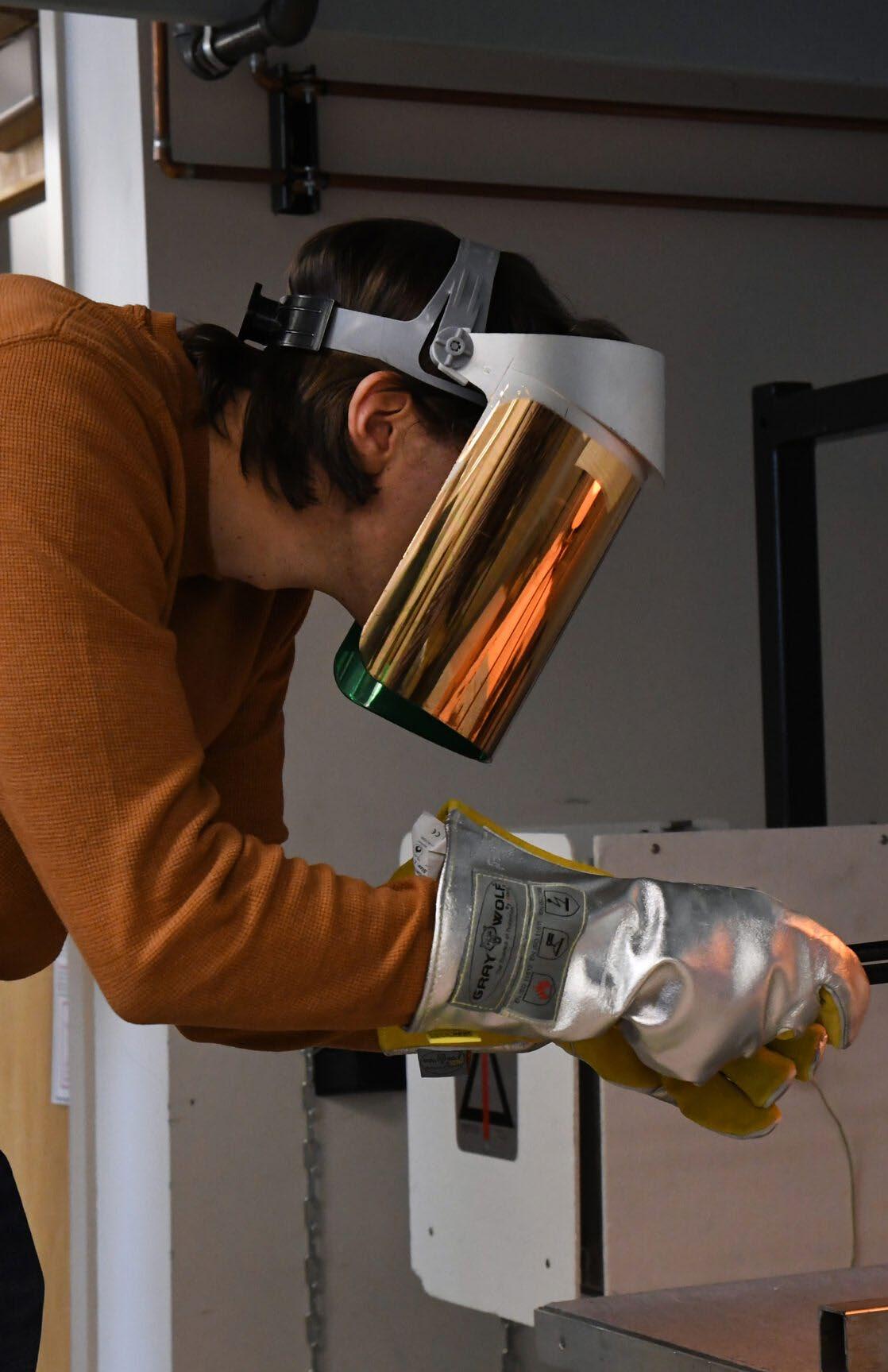
Lori Tunstall, PhD, never imagined she would start a company to revolutionize the concrete industry with her patent-pending biochar technology—a man-made, renewable substance—which offsets carbon dioxide released during cement manufacturing.
But with the help of the Beck Venture Center, Tunstall launched ZeroTwelve in 2025.
“There are other companies on our heels, and speed to market is a key element to our success,” she said. “It would have taken me years to figure out all the things that I don’t know, but because of the resources and the connections at Beck, I caught up in months.”
The 30,000-square-foot Beck Venture Center opened in April 2024. The building offers membership-based
coworking spaces for entrepreneurs—including students and faculty. But it’s Beck’s community and resources that make it uniquely Mines, including:
• A business accelerator program
• A network of professionals who give members free advice
• Business-related talks and networking at bimonthly Startup Forums
• Access to funding—Beck advisors helped companies secure $30 million so far
“We’re creating a fertile environment for a startup community for Denver and the Front Range,” said Zack Bennett ’99, Beck Venture Center director. “If you have any entrepreneurial interests, we give you a home, a resource center and a built-in community.”
If you can pass a Mines differential equations class, you can do anything. That’s according to Mark Hollander ’99, a geological engineer who went from mineral exploration to running—and co-owning—Crazy Shirts, one of the world’s most iconic graphic t-shirt companies.

“Engineering is a mindset,” he said. “It’s about breaking down large, complicated problem sets into their base components and solving from the ground up. You can apply the same problem solving and creativity to a myriad of business problems—supply chain issues, construction site management, logistics and retail processes. In business, this ability is rarefied air.”
Today, Hollander is giving back to Mines’ Entrepreneurship & Innovation Ecosystem as a donor, a connector and a mentor for students looking to engineer a solution for recycling old T-shirts.
“It was a ton of fun,” he said. “I worked with the students on the discovery side. I was amazed at how they were tackling issues, their curiosity and approach to problem-solving. These programs exist to show them what the world out there is going to hold for them. Having an alum with these perspectives and experiences is a real help.”
Hollander brought members of his Young Presidents Forum to Mines to showcase what the school is doing beyond the classroom. The visit included a tour of the Labriola Innovation Hub, the Beck Venture Center and, for fun, the Edgar Mine.
“I believe it’s important for the business world at large to see how Mines is exposing students to E&I and business development,” he said. “They’re getting a competitive advantage that’s hard to come by.”
Tunstall, assistant professor in civil and environmental engineering and the first Mines Entrepreneurial Professor, said Beck is sparking faculty and student entrepreneurship on campus. Of the 53 members, 12 are faculty-founded, 15 are student-founded and 37 are local businesses—many with alumni connections.
When Howard Janzen ’76 ’77, chair of the Mines Foundation Board of Governors, met Tunstall he was so impressed that he joined ZeroTwelve as CEO. He’s been involved with Beck as an advisor and supporter since the early days. He made a $1.5 million gift to name the Janzen Family Pitch Deck—the building’s premier event space—in honor of his family’s legacy at Mines.
“Everybody talks about innovation, but it’s a difficult thing to deliver,” he said. “Because of the Campaign for MINES@150, Mines has put hard assets behind their commitment to fostering entrepreneurship and innovation on campus.”
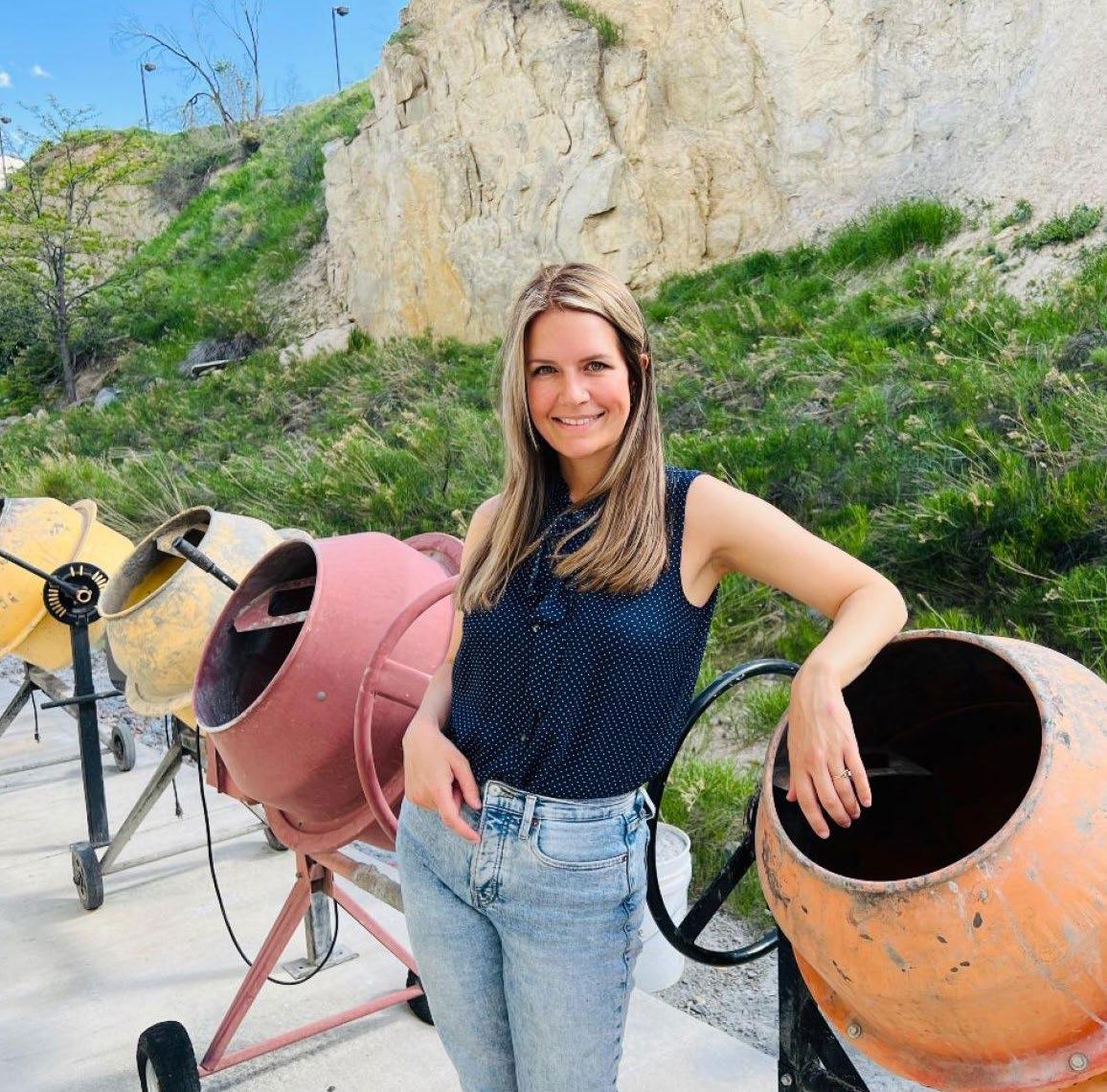
Wouldn’t it be great if students could talk with C-suite executives in person to learn what it takes to reach that level? Mines students enrolled in the one-year Engineering & Technology Management master’s program (ETM)—part of the economics and business department—are doing just that, thanks to Joe Eazor ‘85.
Eazor made a $400,000 gift to launch the ETM program’s Executive Seminar Series. He has also made significant contributions to bolster the department’s goals.
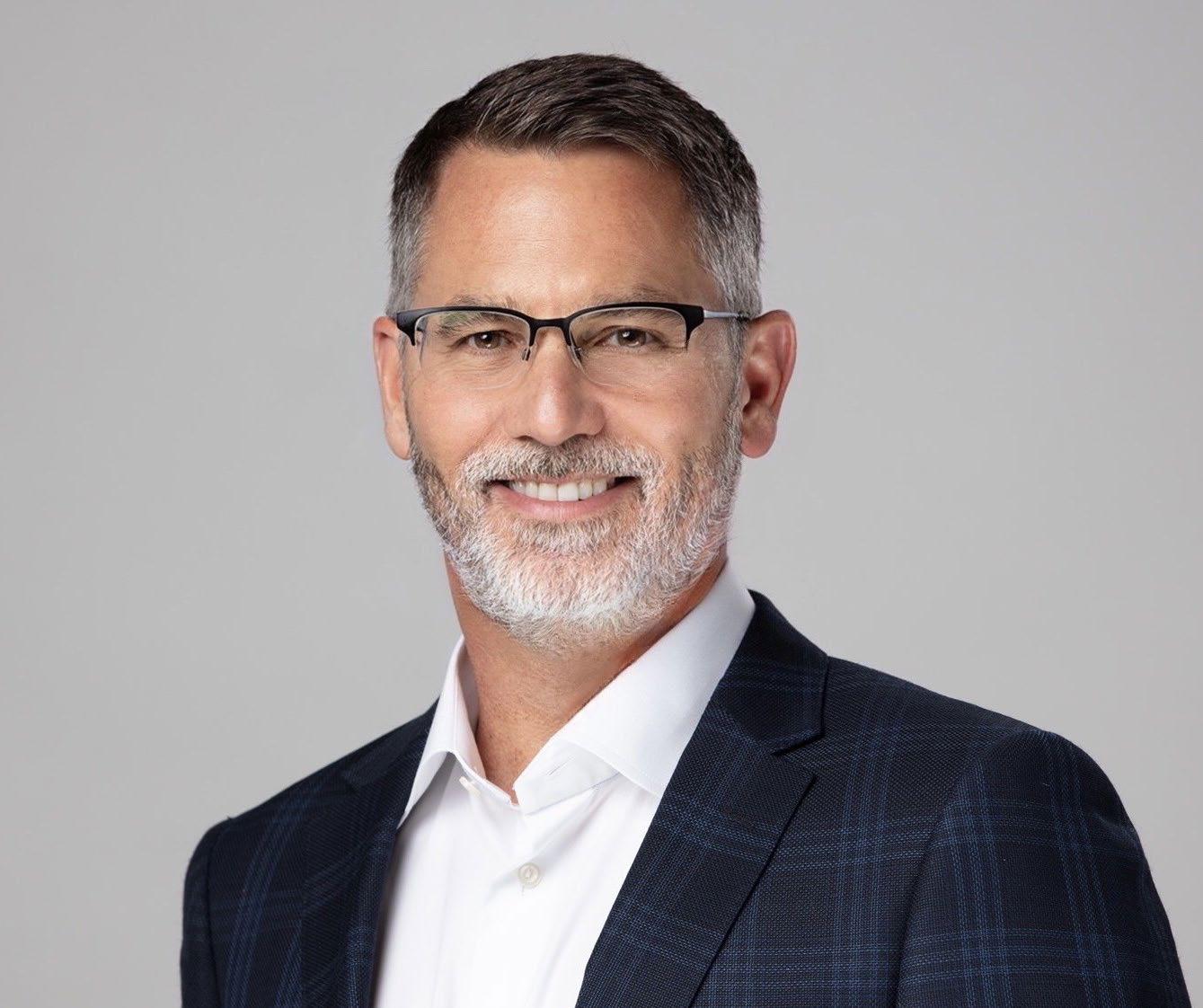
The program brings in executives from across industries to share their insights about career planning, negotiating salaries, responding to conflict, finding a mentor and even how to be taken seriously. Topics change each spring.
“My goal was to help Mines prepare students for the business world,” said Eazor, a former petroleum engineer and multipletime CEO. “I know how my undergrad education helped me, and I felt like there could be more Mines grads in the business world doing good things—not just engineers.”
ETM is one of Mines’ fastest-growing graduate programs. It teaches business concepts and tools found in an MBA program, but with a STEM graduate in mind. The program started on campus in 2001 and launched an online option in 2024.
Eazor talks candidly about his career trajectory from petroleum engineering to earning an MBA and becoming the CEO of several private and public companies. With a STEM education and the experience that an ETM degree provides, Mines students are well-equipped to navigate career opportunities.
“With an ETM degree, students can command a higher starting salary, advance more quickly, or even pivot their career,” said Crystal Dobratz, PhD, director of the ETM and Online programs. “Linking an analytical understanding with business acumen is our ultimate goal.”
Mines pride has deep roots that feed a commitment to community and generosity. But for students, there can be a stigma around philanthropy. The Mines Foundation Dignitaries program is empowering a select group of students to change that through peer-to-peer efforts.
Established in 2024, the Dignitaries program trains students to become ambassadors of philanthropy. They serve as the student voice of the Mines Foundation, planning and hosting campus events and workshops to raise awareness about the impact of philanthropic support at Mines.
“The Dignitaries program bridges the gap between students and a philanthropic, engaged alumni community,” said Brian Winkelbauer, Mines Foundation president and CEO. “We want students to see philanthropy as a multifaceted way to give back through time, talent and treasure now and in the future.”
Dignitaries represent the Foundation at events, interacting with donors and sharing personal stories about how private support has impacted them. They also help fellow students learn about fundraising for campus initiatives and student organizations and networking with Mines
alumni. This hands-on approach builds their leadership and communication skills, preparing them for future roles as advocates in their careers and communities.
Importantly, Dignitaries encourage students to reflect on how much of their Mines experience has been made possible by the generosity of others. This focus creates a ripple effect, inspiring students to think about how they can give back and stay connected to Mines.
Dignitaries also learn about a critical part of philanthropy— saying thank you. Each semester, they throw a party for students who’ve given their time, talent or treasure. Graduating student philanthropists also receive stoles to commemorate their contributions.
Fostering a culture of philanthropy will strengthen the Mines community for current and future students.
At its core, philanthropy is showing your love for what you care about by contributing to that cause. Which is why, for nine years, #idigmines has been the heart of giving for the Mines community. It is one day every year that students, faculty and staff, alumni and friends all come together to make a difference for Mines' causes. It’s not about the dollars, it’s all about the community coming together to participate in this tradition.
The causes include Mines departments and programs, athletics and crucial student support services like Blaster’s Basket, the Center for Academic Services & Advising, The Mines Fund and the Student Emergency Fund. Causes use the funds for what they need most, so it creates a vital impact.
The chance to give back to a campus that’s given me so much is incredible. Being part of this program allows me to make a real difference and build lasting relationships with alumni and donors.”

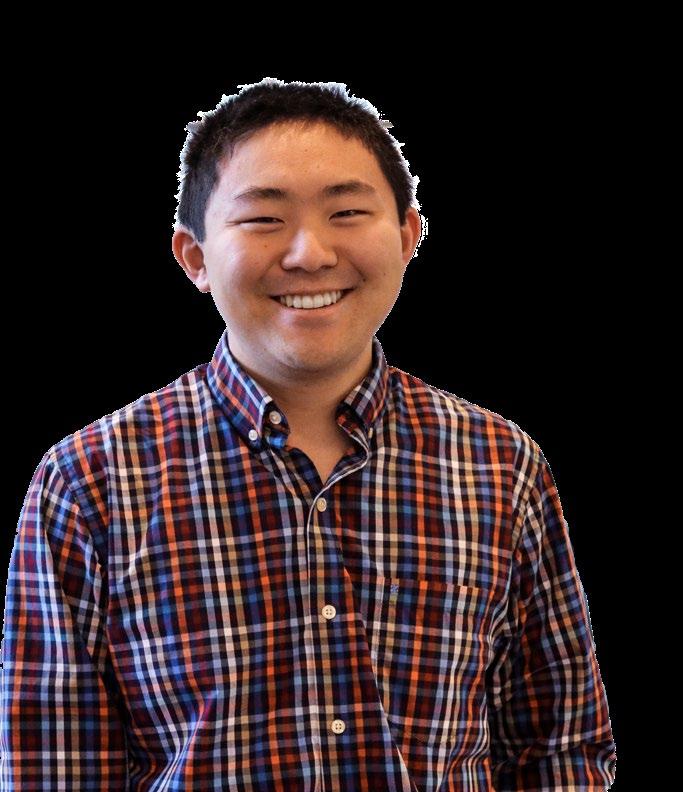
Katherine Miller Class of 2026
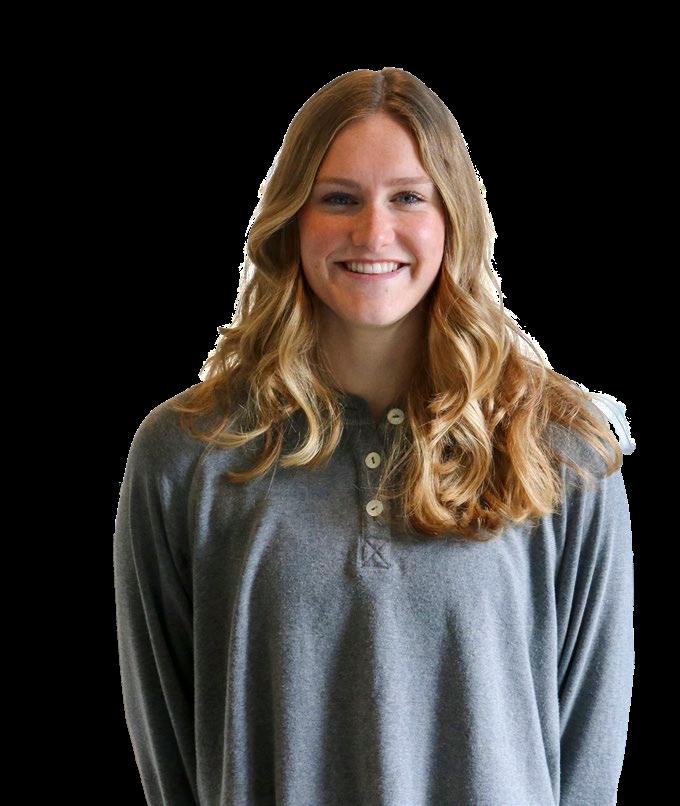
Through the Dignitaries program, I have helped connect many student organizations to opportunities they wouldn’t have had otherwise, especially in connecting with alumni and fostering relations that will last beyond graduation.”
Kenny Hora Class of 2025

“Support from #idigmines donors has added monies to the department, which have been used for field camp, field trips and needed equipment,” said geology and geological engineering professor Steve Sonnenberg. “Lowering costs to the students is always a priority. The program also brings together students, faculty, alumni, family and friends, building a stronger community.”
Causes get actively involved in promoting #idigmines to their communities.
“I encourage everyone in our department to contribute and also to get all their friends to contribute,” said Sonnenberg. “I personally send out several hundred emails and also encourage my students to get involved in the fun activities.”
#Idigmines celebrates Oredigger Pride around the globe with fun campus and online competitions like Mines trivia, photo contests, puzzles and all things Blaster to unlock bonus funds for their favorite causes.
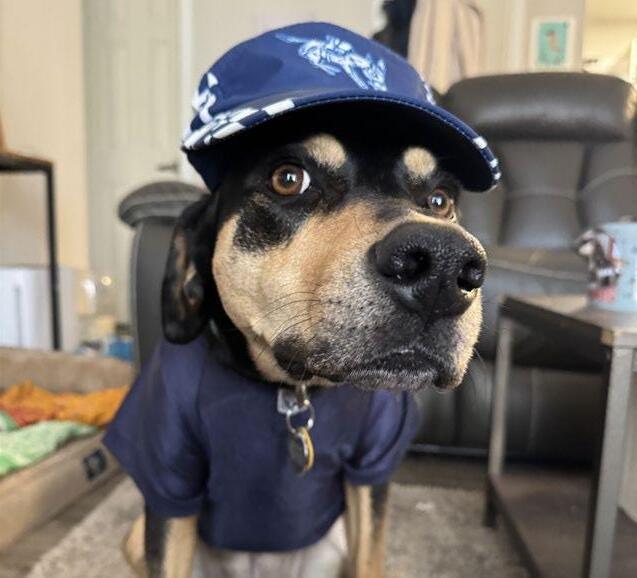


Q Why is private support so critical for sustaining excellence at Mines?
A Most people don’t realize that even though Mines is a public university, the state provides only seven percent of the budget. Private support allows Mines to provide a world-class education. It helps to provide all the amazing facilities, programs and experiences each student encounters.
Q Why did you want to make your impact through the Mines Signature Student Experience?
A We know that Mines graduates are technically extremely well prepared to enter the workforce. We wanted to help elevate their Mines experience and make them distinctively prepared with the skills and experiences to accelerate their success in the workplace and in life beyond Mines.
Q How would having a professional development program like VIP have impacted your education and your career if it had been available while you were at Mines?
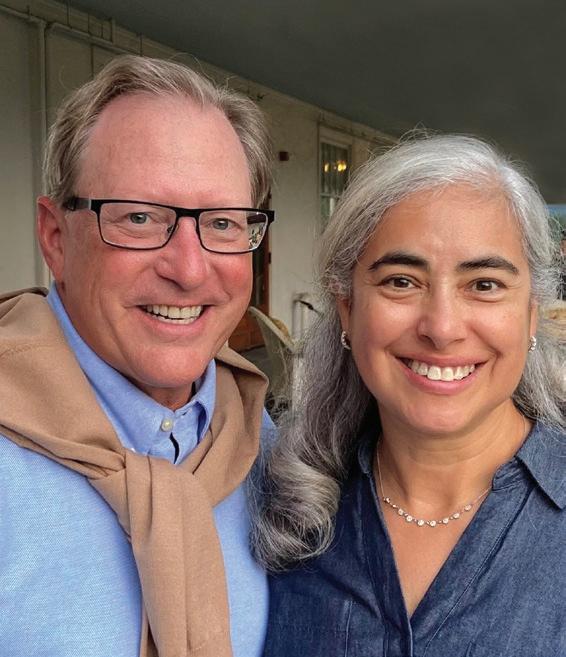
A We would have learned that the so-called “soft skills” can make an immediate and impactful difference on one’s career. The opportunity to learn tangible action steps in the six professional development competency areas would certainly have resulted in fewer naive workplace experiences!
Q How have you seen the MINES@150 vision fulfilled, and how does it distinguish Mines?
A We are very proud to see how the MINES@150 strategic priorities have come to life. Students and faculty have worldclass facilities and support systems to learn and innovate. For example, Mines now has hands-on makerspaces that are second to none. We haven’t seen this amount of square footage dedicated to innovation at any other university. Also, support for students has been bolstered by new scholarship programs and a larger endowment. And new academic programs are preparing students to tackle the challenges of today and tomorrow. In short, Mines has positioned itself for the future, and students, industry and the world will benefit.
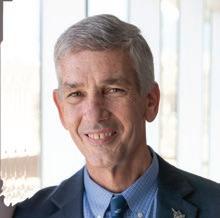
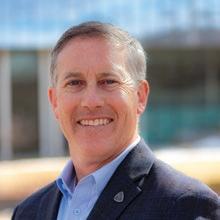
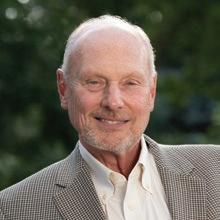
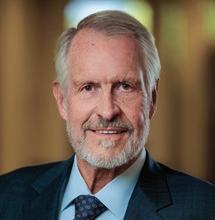
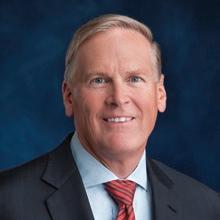
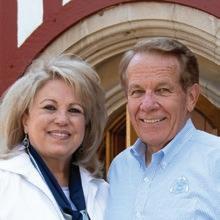
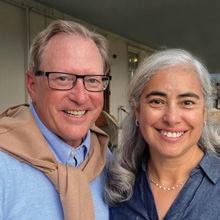
Q&A
Q Why did you want to make you impact on Mines’ excellence?
A At Kiewit, we have a saying devised 80 years ago by Mr. Kiewit, that you should be pleased, but never satisfied. It’s an attitude of continuous improvement. This is the same attitude Mines has, what they’ve done for the past 150 years. I have a passion for helping make sure Mines can continue offering the skillsets that the world needs and creating leaders who will make a big difference in the world around them.
Q What impact do you think a leadership program like the Grewcock Presidential Scholars might have had on you?
A I knew that I probably wasn’t going to be an engineer later as a Mines student. I had pretty rapid acceleration in my career without these types of classes, but I think programs on emotional intelligence and leadership would have helped me frame my perspective earlier. I eventually learned that not everybody will have my perspective, and that if my team is successful and the organization is successful, you have to trust that, in turn, you’ll be successful in the way you define it.
Q How have you seen the MINES@150 vision fulfilled, and how does it distinguish Mines?
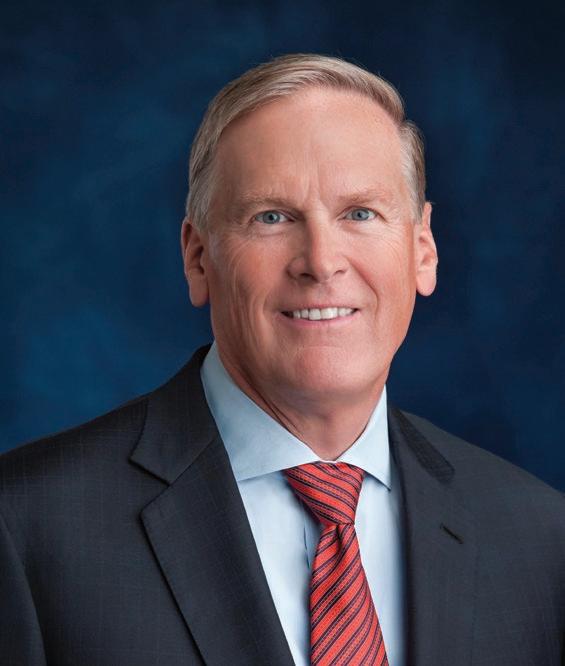
A I think during this time Mines has taken advantage of the many opportunities to tell the school’s story, and they’ve done a good job. You can see the results of this through some of the “unusual suspects” who have understood and supported the vision set out by the Mines leadership. The school looks much different than when I got out, but the values are the same, and those values plus the vision helped the campaign surpass the goal.
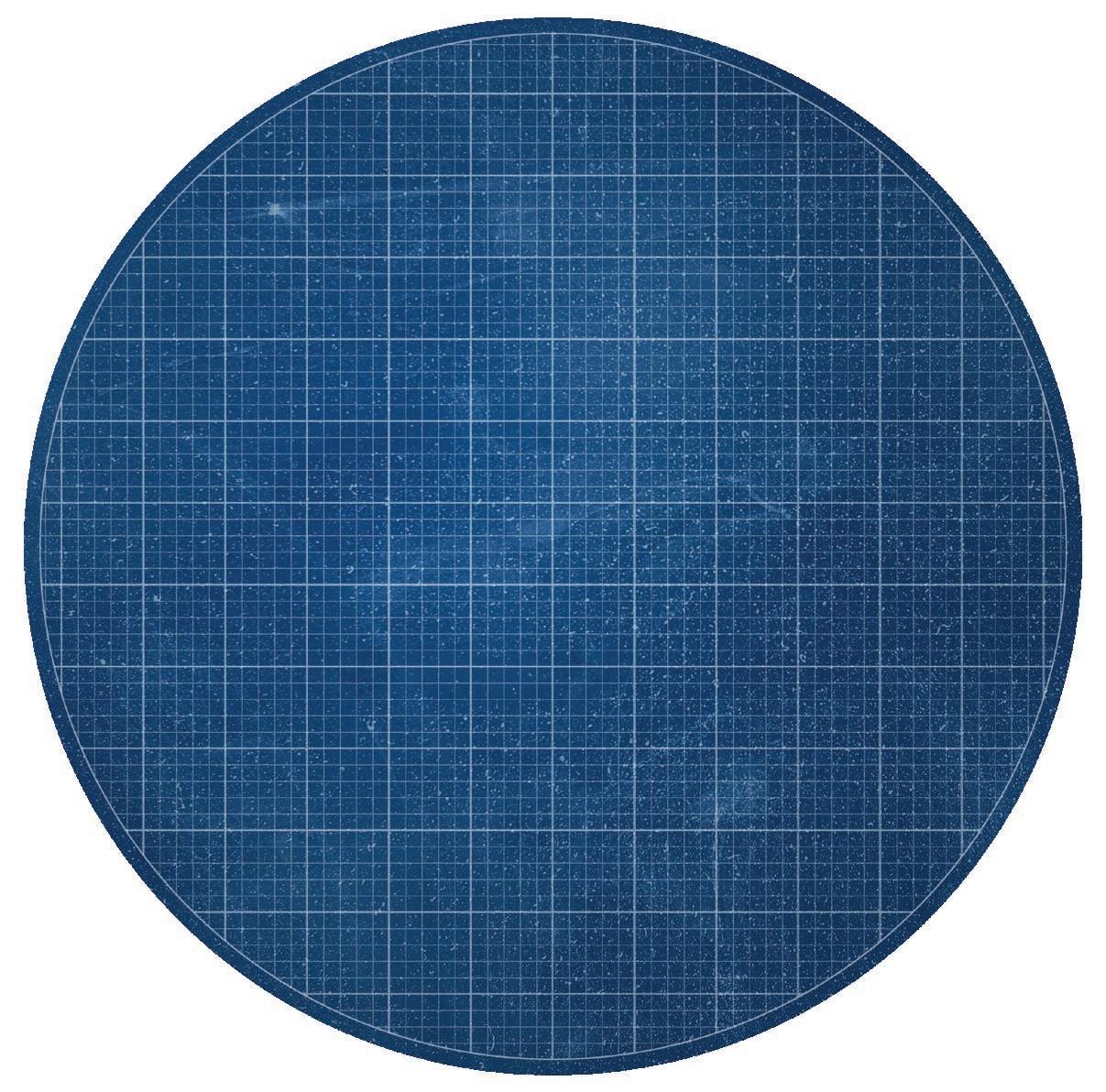



Read expanded versions of these stories on the Campaign for MINES@150 website
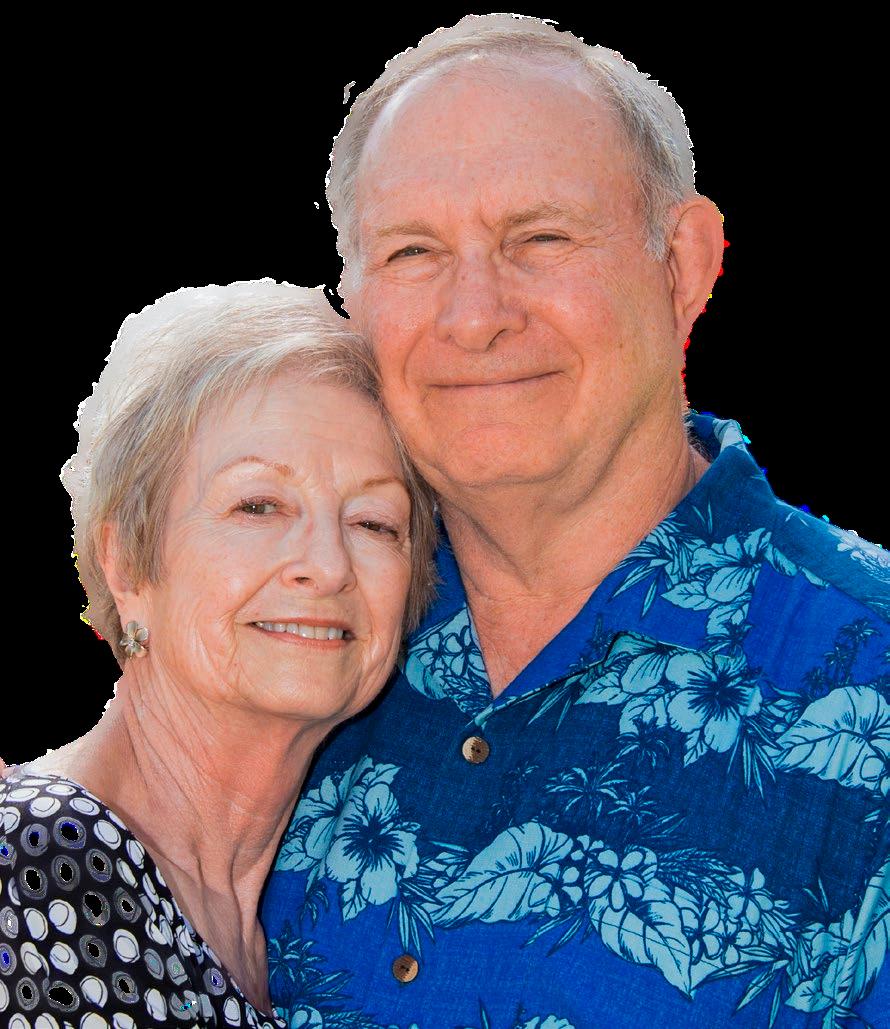
Innovation comes from chance interactions in diverse environments, including some that may be outside of whatever discipline you’re working in. There are a lot of failures, but the overall ecosystem survives because the good ideas stick. Mines not only helps the winners win, they help the losers learn from failure and encourage and support them to try again.”
Joe Gray, PhD
Professor Emeritus, Biomedical Engineering, Oregon Health & Science University Knight Cancer Institute
Professor Emeritus, University of California San Francisco

Established the $5 million Joe and Jane Gray Endowed University Chair to honor his late wife, Jane. Supports Mines’ multidisciplinary efforts to address existential issues facing mankind.
• 1968 Mines graduate, bachelor’s degree in physics
• Co-leader of one of the first Stand Up to Cancer “Dream Teams”
• PI for the National Cancer Institute’s Cancer Systems Biology Consortium and Human Tumor Atlas Network Research Center
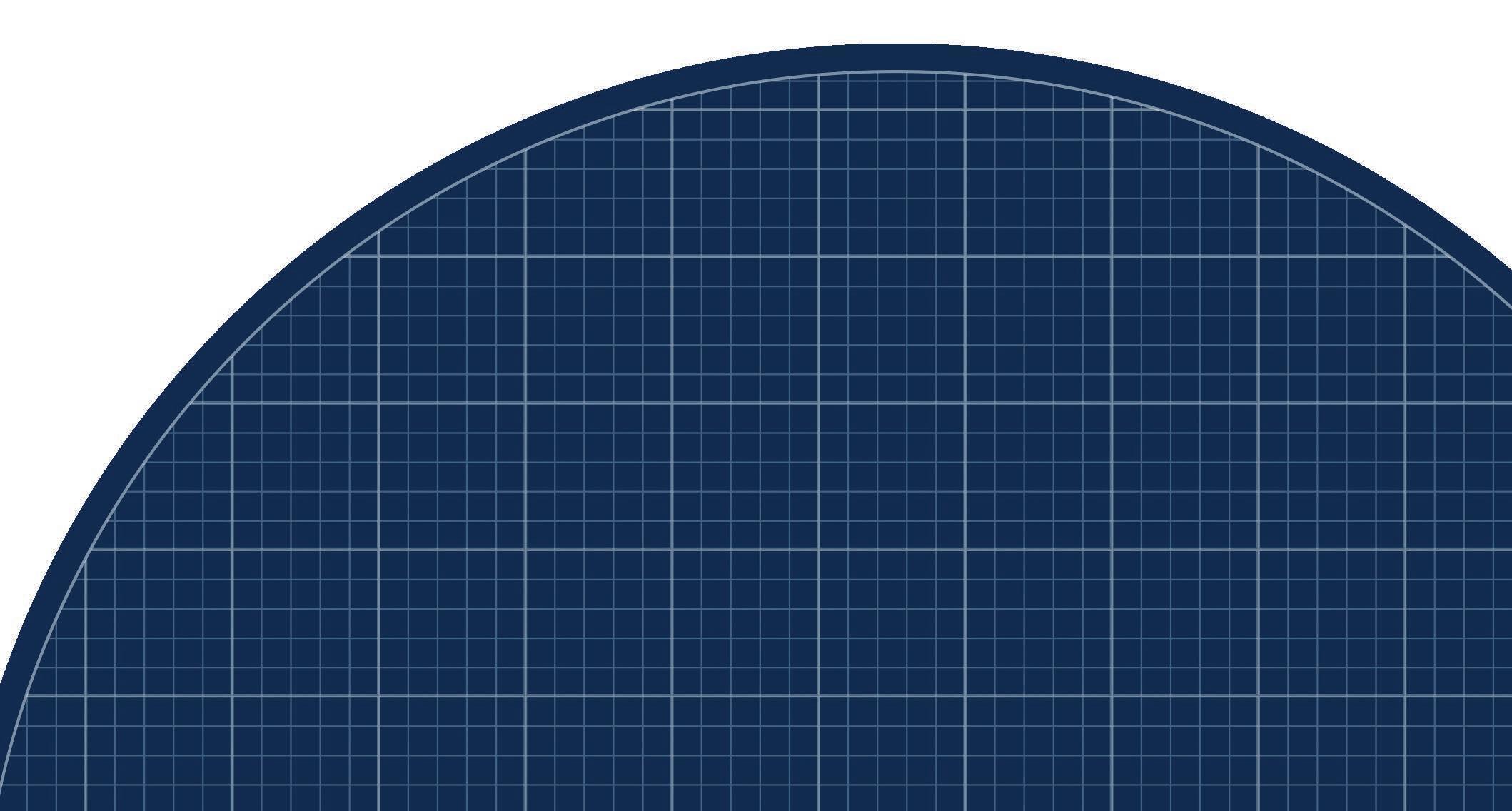
• Developed groundbreaking tools that revolutionized cancer diagnosis and treatment
• Holds 150 U.S. patents